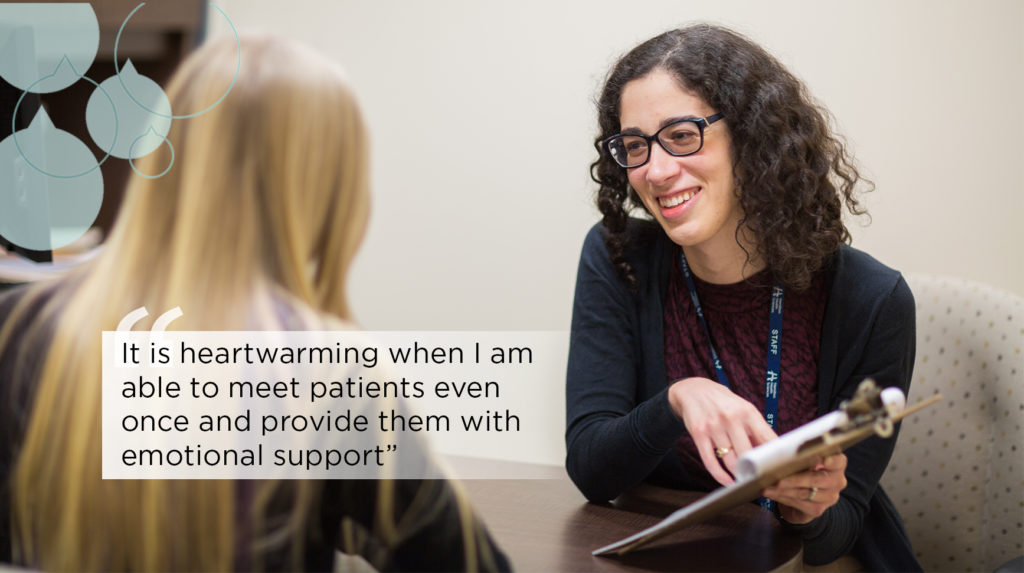
Introducing…a neuropsychologist
Dr. Esther Direnfeld is a Clinical Neuropsychologist in Supervised Practice with an interest in acquired brain injury. She has been with Hamilton Health Sciences since 2016, first as a resident, and then most recently as a staff neuropsychologist at the Regional Rehabilitation Centre.
What do you love most about your role?
I love helping patients who have had brain injuries find more manageable ways to manage their daily activities. This includes work, school, lifestyle factors like sleep and exercise, and emotional well-being. To do this, my patients undergo neuropsychological assessments, with the help of our dedicated psychology team, in which we investigate how their injury may have affected their cognitive, emotional, and physical functioning.
What do you find challenging about your role?
I typically only see patients once or twice when conducting neuropsychological assessments. As such, I often only have limited face-to-face time to discuss findings and recommendations from their assessment with them. I rarely have the opportunity to follow-up with patients after completing their neuropsychological assessment. For example, this means that if my patient and I discuss implementing sleep strategies during the assessment, I have to make sure that the patient understands how to implement these strategies while I am seeing them in my office. I don’t often hear how well patients are able to implement recommendations at home and in their day-to-day life.
Describe a typical day in your role?
Typically, I see a few patients every day. This typically includes patients who I’m meeting for the first time for a neuropsychological assessment. I discuss changes in their cognitive, emotional, and physical functioning that they have noticed since their brain injury, as well as their background history and other things that are relevant to their functioning. After completing neuropsychological testing, I meet with the patients to discuss what the results mean in terms of their daily functioning. I also spend time consulting and communicating with my psychology team and other professionals in the Acquired Brain Injury Program to ensure we deliver patient-centred care. Lastly, I meet with patients to provide psychological therapy to help address and manage mental-health concerns.
Tell us about your most gratifying experience at HHS
I often see patients who have not previously had access to mental health services. It is heartwarming when I am able to meet patients even once and provide them with emotional support or one tool that they can use to make their life more manageable.
What’s one thing people would be surprised to learn about your role?
One thing that people may be surprised to learn is that as clinical neuropsychologists use evidence-based methods for assessment and treatment. We use a biopsychosocial perspective to integrate assessment results and treatment findings. This model looks at biological factors, psychological factors and social factors. We consider how other features such as cultural and social factors may influence assessment results and patients responses to treatment. Considering these factors, we provide diagnoses and prognoses to patients based on their current functioning, past functioning, and other factors we take into account through the biopsychosocial perspective.
